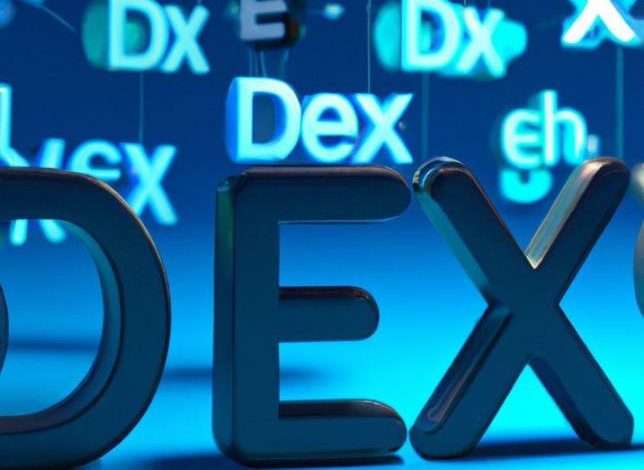Exploring the Potential of Decentralized Exchanges (DEXs)

Exploring the Potential of Decentralized Exchanges (DEXs)
What are Decentralized Exchanges (DEXs)?
Decentralized exchanges, commonly referred to as DEXs, are platforms that enable peer-to-peer cryptocurrency trading without the need for intermediaries or centralized authorities. Unlike traditional exchanges, DEXs function on blockchain technology, allowing users to retain control of their funds and trade directly with each other.
The Advantages of DEXs
Decentralized exchanges offer several unique advantages compared to their centralized counterparts:
1. Enhanced Security and Privacy
DEXs provide users with increased security by eliminating the need to deposit funds on the exchange itself. Instead, trades occur directly between users’ wallets, reducing the risk of hacks or theft associated with centralized exchanges. Furthermore, DEXs don’t require users to disclose their personal information, providing enhanced privacy.
2. Greater Control and Accessibility
With DEXs, users maintain control over their private keys, ensuring complete ownership and control of their assets. Additionally, DEXs allow for anyone with an internet connection to participate, fostering financial inclusion and accessibility for users around the world.
3. Reduced Dependency on Intermediaries
Traditional exchanges often rely on intermediaries such as custodians or brokers to facilitate trades. DEXs cut out the middlemen by automating the trading process through smart contracts, eliminating the need for costly intermediaries, reducing fees, and potentially decreasing the risk of manipulation.
Frequently Asked Questions (FAQs)
1. Are DEXs as secure as centralized exchanges?
While DEXs offer enhanced security compared to centralized exchanges, they are not entirely immune to risks. It’s crucial to remain vigilant and take necessary precautions such as securely managing private keys, utilizing reputable DEX platforms, and staying informed about potential vulnerabilities or scams.
2. Can I trade all cryptocurrencies on DEXs?
Different DEXs support different cryptocurrencies and tokens. The availability of specific assets for trading will depend on the platform you choose. However, with the growth of the decentralized finance (DeFi) market, the range of tradable assets on DEXs is continually expanding.
3. How do DEXs achieve liquidity without centralized order books?
DEXs utilize various liquidity mechanisms, such as automated market makers (AMMs) and decentralized liquidity pools, to facilitate trading without centralized order books. These mechanisms leverage smart contracts and algorithm-based pricing to ensure that buyers and sellers can trade directly with each other.
4. Are transactions on DEXs faster than centralized exchanges?
Transaction speed on DEXs can vary depending on the underlying blockchain’s performance. Some DEXs operate on more scalable blockchains, enabling faster transaction confirmation times. However, it’s important to note that liquidity and network congestion can also influence transaction speeds on DEXs.
Conclusion
Decentralized exchanges (DEXs) offer exciting possibilities for the future of cryptocurrency trading. With their enhanced security, greater control, and reduced reliance on intermediaries, DEXs represent a significant step toward a more decentralized and inclusive financial system. As with any investment or financial activity, it’s important to conduct thorough research and exercise caution when engaging with DEX platforms.
By providing answers to relevant FAQs, this blog post aims to help readers gain a better understanding of decentralized exchanges and their potential benefits. Whether you’re new to crypto or an experienced trader, exploring the world of DEXs can open up new opportunities and empower individuals to take control of their financial future.



